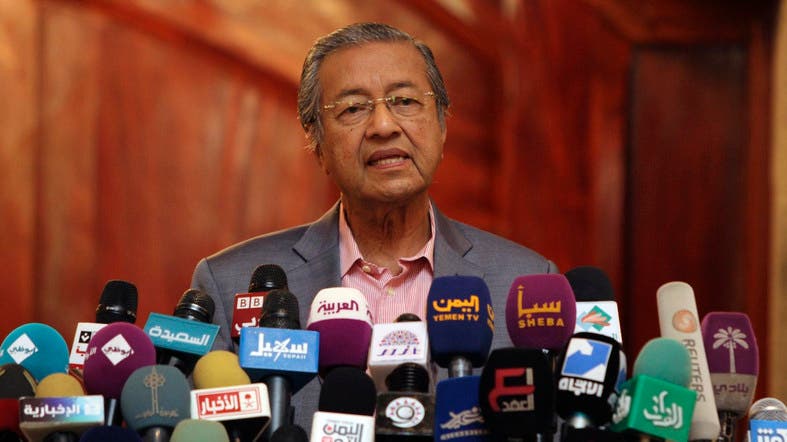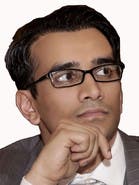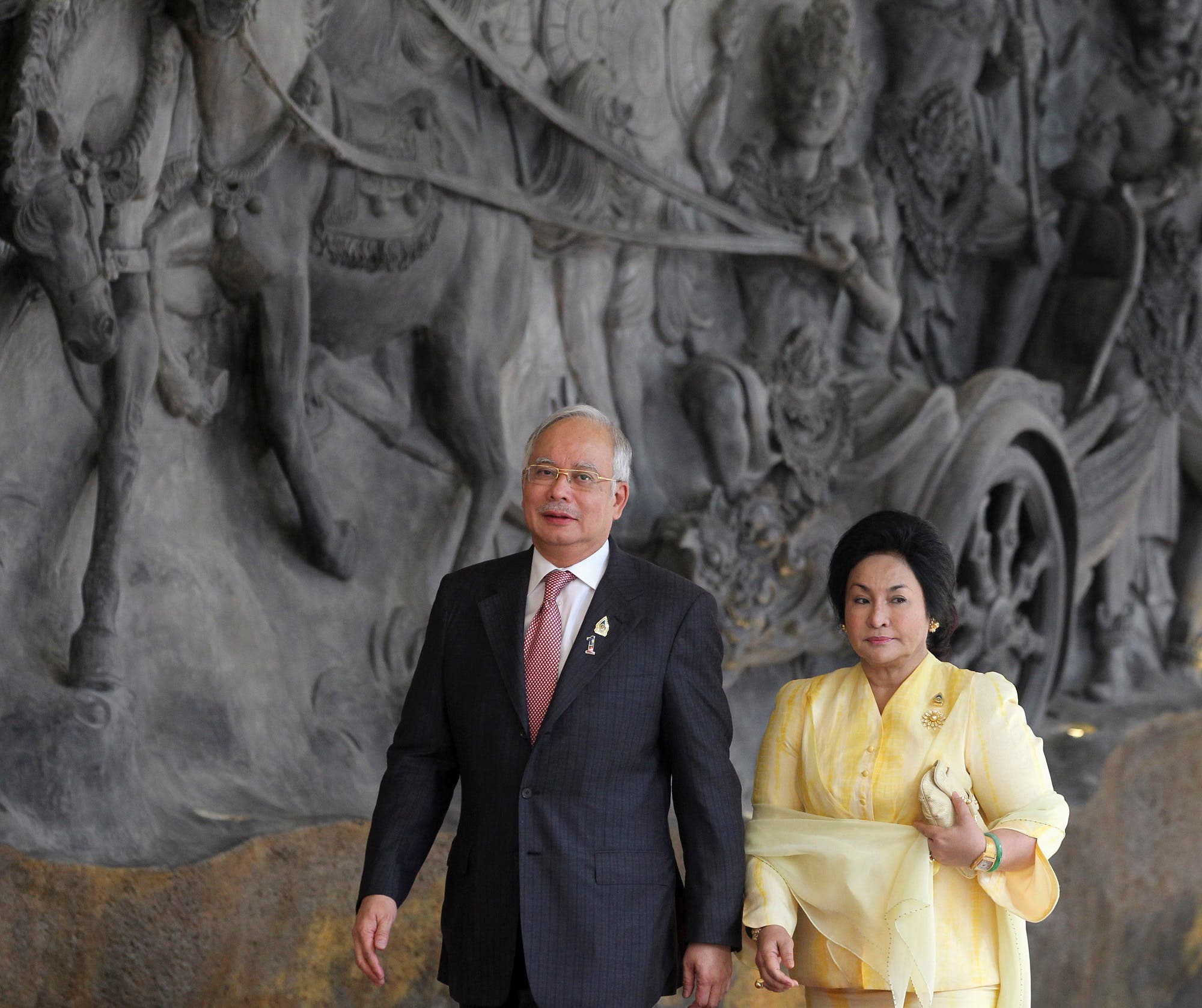Prime Minister Najib Razak won Malaysia’s last general election, despite losing the popular vote. Since then, he has been embroiled in a corruption scandal that has been investigated in a half-dozen countries.
Yet the avuncular leader with an aristocratic pedigree was still expecting to cruise to another election victory in polls due by mid-2018, maintaining his coalition’s record of unbroken rule since independence in 1957. Now, all bets are off.
That’s because his former mentor and prime minister for 22 years, Mahathir Mohamad, who turns 92 next week, has agreed to join a fractured opposition alliance and head the government again if it wins. He would be the world’s oldest prime minister if that happened.
Mahathir, along with Najib’s former deputy, Muhyiddin Yassin - fired last year for questioning his boss about the scandal - have formed a new party called Bersatu (Unite). It has opened branches in 165 of parliament’s 222 constituencies, Muhyiddin told Reuters, a feat few opposition parties have managed.
During his 1981-2003 rule, Mahathir championed modernization by switching Malaysia’s focus from plantations and mining to a diversified high-tech manufacturing base on the back of foreign investment. He built the world’s tallest buildings at the time, the Petronas Twin Towers.
A considerable fan base is excited about his comeback. “I was still young when Mahathir was prime minister. And I thought anything was possible ... maybe cars could fly,” said Nazariah Harun, a former government party supporter in the southern state of Johor, bordering Singapore.
Mahathir also dealt ruthlessly with opponents, jailing his former deputy - and now alliance partner - Anwar Ibrahim on corruption and sodomy charges in the late 1990s. The opposition alliance hopes to capitalize on a couple of scandals that are resonating in rural Malaysia.
One is around the state’s 1Malaysia Development Berhad (1MDB) strategic development fund that Najib, 63, founded after taking power in 2009. Its murky transactions through overseas front companies and Middle Eastern partners, many of them exposed by foreign media reports, have bewildered the public over the past two years.
Najib insisted he did nothing wrong when it leaked to the media that $700 million wound up in his bank account before the 2013 election. The other scandal, involving state plantation company FELDA, is more problematic because it directly affects tens of thousands of small landholders in the heartlands. They are a key vote bank for Najib’s party, the United Malay National Organization (UMNO).
Umno patronage
The 1,600 residents of Kuala Sin, a village of farmers and rubber tappers in Mahathir’s home state of Kedah, are switching from UMNO to Bersatu, says UMNO’s former chief there. “I’ve held the ballot box here (for UMNO) from 1962 until 2014... but this year, God willing, UMNO will lose,” said 77-year-old Ramli Mat Akib at his weathered two-storey wooden home in Kuala Sin.
The UMNO branch office opposite his home has closed. Mahthir’s son Mukhriz, who leads Bersatu’s campaign in Kedah, believes it is “making huge headway” in rural Malaysia. “It goes all the way down to the branches, and in Kedah very many UMNO branches have dissolved,” Mukhriz told Reuters.
UMNO says that isn’t true nationwide. “We have a lot of young people queuing up to sign up at our
headquarters as new party members. I don’t see a problem at all,” said UMNO’s secretary general Tengku Adnan Mansor.
Despite the scandals, Najib commands the loyalty of UMNO chieftains. Patronage has much to do with that.
An UMNO leader needs to distribute largesse to guarantee chiefs’ support and they, in turn, operate an affirmative action plan for ethnic Malays first introduced in 1971. The policy gives majority Malays government contracts, cheap housing, guaranteed university admissions and preferential stock shares.
Government-appointed village committees also provide cradle-to-grave assistance. “This makes the villagers closely dependent on the committee, and that makes the committee supreme and also makes UMNO supreme,” said Radzi Ayob, 54, a veteran UMNO leader in Kedah, who joined Bersatu last year.
But most Malays have moved to cities and even those in the countryside are less reliant on the rural welfare model. “As it is now, UMNO still needs Malaysians but Malaysians may not need UMNO,” Radzi said.
Curtailing dissent
Najib has kept a lid on the scandals by curbing dissent. The main media outlets are allied to his government. Anwar, the charismatic opposition figure, is in jail on what critics say was another trumped-up sodomy conviction in 2014. Najib has revived a colonial-era subversion law allowing him to jail opponents without trial. The only conviction in the 1MDB scandal was of a legislator -- who publicized alleged wrongdoing at the fund.
But Najib is riding a good economy into the election. The ringgit has been one of Asia’s strongest currencies, stocks have hit a two-year high, and economic growth was 5.6 percent in the first quarter. And an opposition victory, however unlikely, would put Malaysia into uncharted waters and likely trigger fears of a short-term plunge in financial markets.
Analysts, however, say Mahathir’s entry into the electoral fray supporting an Anwar-led opposition alliance does represents a real threat to UMNO.
“If the two leaders can revive a reversed role of their previous partnership displayed so effectively when they were in national leadership in the 1990s, the opposition could have a winning formula,” said Yang Razali Kassim, senior fellow at S. Rajaratnam School of International Studies (RSIS) in Singapore.
“Mahathir supporting Anwar, in a spirit of genuine reconciliation, will be a powerful combination.”
Salbiah Kassim, a member of the UMNO women’s wing in Kedah, saw parallels to Brexit and US President Donald Trump’s election win. “Just like overseas, things can change,” she said. “We don’t
know where the silent voters will go.”
Last Update: Thursday, 6 July 2017 KSA 09:29 - GMT 06:29



No comments:
Post a Comment